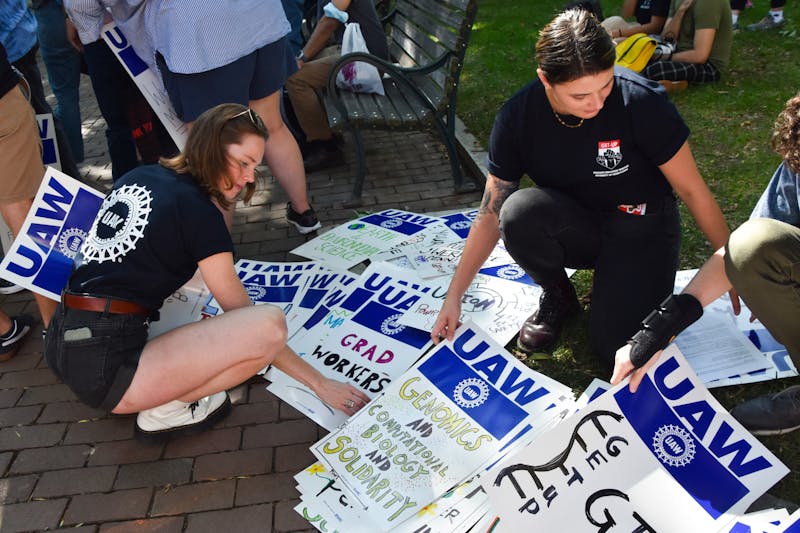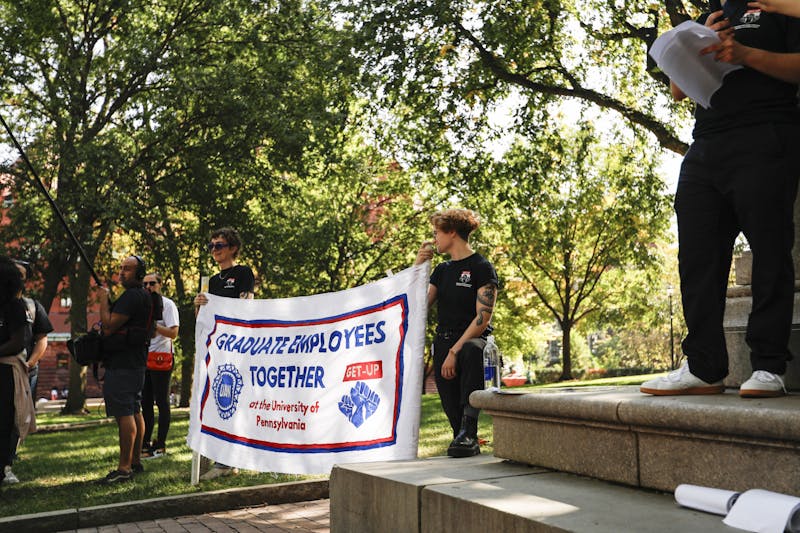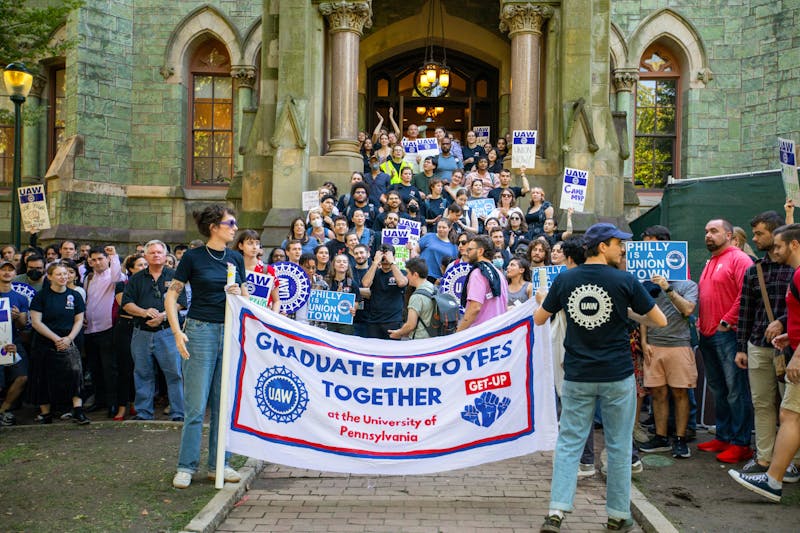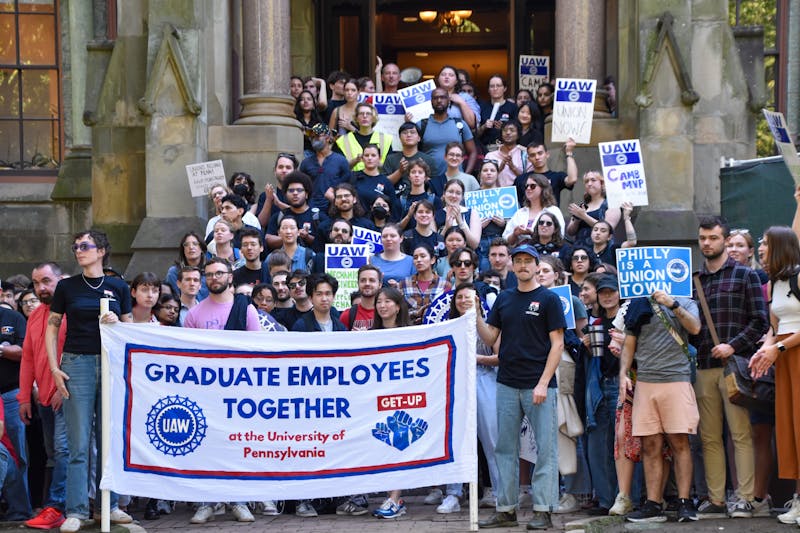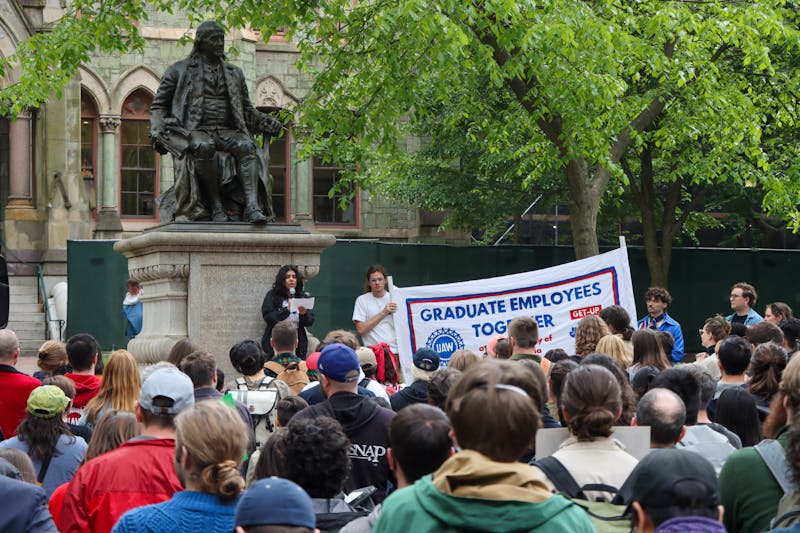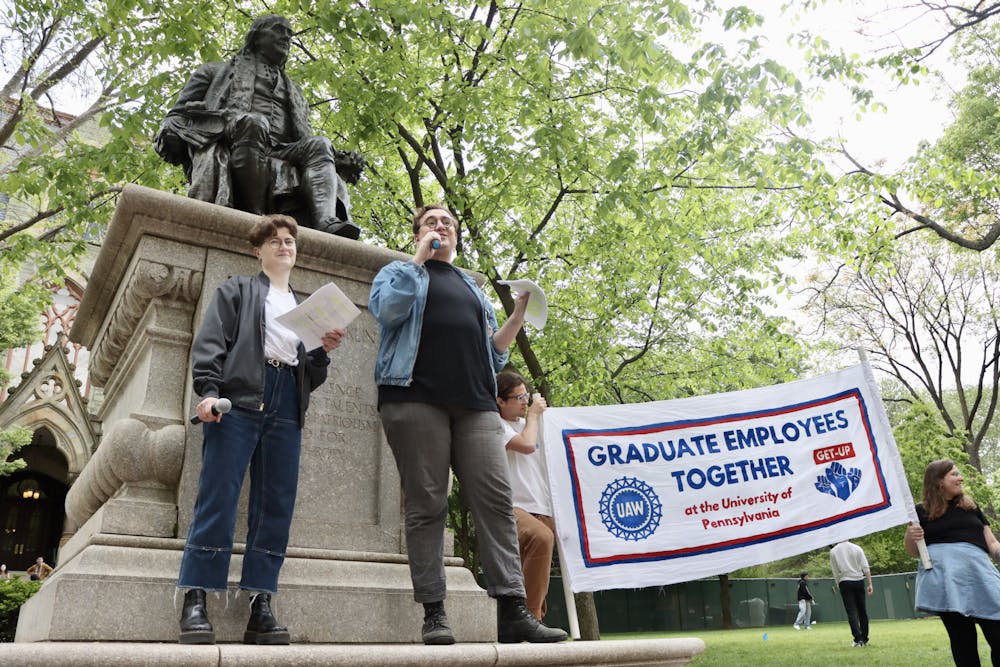
Penn’s graduate student workers have voted to unionize by an overwhelming majority.
The vote passed by a 1,807-97 margin. Over 2,300 eligible workers, all of whom are members of Graduate Employees Together — University of Pennsylvania, cast ballots in the election which took place on May 1 to 2. About 400 graduate workers cast “challenged” ballots, meaning that the University and graduate workers disagree on whether these employees are eligible to vote. GET-UP is now the largest union at Penn in recent memory, representing over 3,700 workers.
“Today, after months of organizing and a series of delays by the university, we are thrilled to announce that we have won our union,” sixth-year history and sociology of science Ph.D. candidate and GET-UP organizer Sam Schirvar wrote in a press release. “This battle was hardfought, and every single worker who made time to organize played a part in this victory … We are urging the university to prepare to negotiate with us for a fair contract.”
A University spokesperson wrote in a statement to The Daily Pennsylvanian that the National Labor Relations Board will now certify the election outcome. When the certification is complete, United Auto Workers — which represent GET-UP — will make a request to begin the collective bargaining process.
“At Penn, we engage as a community to advance what is important to us all — a dynamic and supportive academic environment,” the spokesperson wrote. “We look forward to working with representatives from the UAW to continue this important mission for Penn’s graduate and professional students.”
The election victory, which grants GET-UP official recognition and representation by UAW, caps months of campaigning and unexpected delays. The election was originally scheduled for April 16 and 17, but was suddenly postponed on April 11. In October 2023, graduate students seeking to form a union filed 3,000 authorization cards with the NLRB, but the University subsequently refused to voluntarily recognize the union.
As graduate workers across Penn’s campus celebrate the victory, attention now turns to future bargaining efforts.
“This is a historic moment,” sixth-year communication Ph.D. candidate Brend Mahoney, who served as an election observer due to being ineligible to vote, told the DP. “[The union] is going to give us a seat at the table with Penn to win provisions for grad students that we very much need.”
Mahoney emphasized that all graduate student workers — even those unable to vote in the election — “make essential contributions” to the teaching and research at Penn.
“We've been going to the polls for the past couple of days to democratically vote to create our union so we can begin to address these issues and more,” he said.
“It's really important for workers to have a democratic voice in our workplace,” fifth-year English Ph.D. candidate Sam Samore added. “That right for workers is enshrined in the law. But we only take advantage of that right if we form a union.”
Samore said graduate workers engaged in conversations about what they want and how to best achieve their goals leading up to the election.
“It makes me feel proud that we have really strengthened our relationships between each other,” they said.
Third-year cellular and molecular biology Ph.D. candidate Emily Aunins told the DP that she voted yes in order to support the work that she and all graduate workers do to support the University.
“I believe that all of us grad students deserve higher pay for the work that we do in a lot of ways to keep Penn running the way it does,” she said.
Aunins told the DP that this vote was meaningful because it would allow student workers to bargain over issues personally important to them.
“Because of Penn's policies regarding students losing their medical insurance, when they take leaves of absence, they've had to make really hard decisions about whether to prioritize their well being or the ability to pay for their health care,” Aunins said. “That’s something that I've seen and has really upset me, and so I'm really excited to be able to bargain over that.”
Samore said that a particularly important issue for GET-UP is ensuring the protection of gender-affirming healthcare coverage.
“If the political climate in Pennsylvania became even more negative for trans people than it already is, it's not at all difficult for me to imagine that the administration might … roll back the quality of our gender-affirming health care coverage,” they said.
Samore added that the next steps will include discussing the union’s priorities and electing officials to help begin bargaining and creating a stronger contract as soon as possible.
“This is an inspiring victory and shows the power of truly worker-led organizing,” Director of UAW Region 9 Daniel Vicente wrote in a press release. “We welcome these workers into the growing UAW Region 9 family. And we look forward to standing with them as we fight together for a strong first contract that achieves what they deserve and continues to raise standards for academic workers across the US.”
The Daily Pennsylvanian is an independent, student-run newspaper. Please consider making a donation to support the coverage that shapes the University. Your generosity ensures a future of strong journalism at Penn.
Donate





